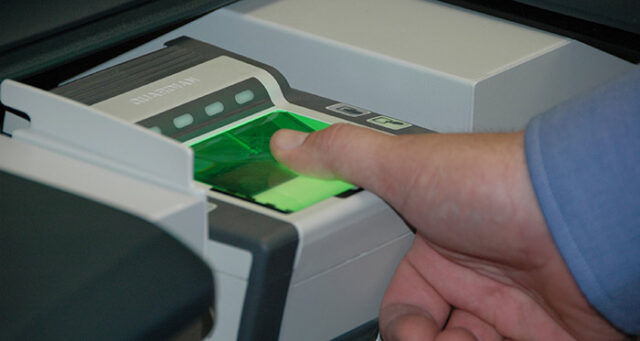
As a job seeker, you might be wondering what exactly employers see when they run a background check on you. Background checks have become an essential part of the hiring process for many organizations, as they help to ensure that candidates are not only qualified for the position but also have a history that aligns with the company’s values and culture.
In this article, we will delve into the different types of background checks employers may perform and what information is typically revealed during this process.
Criminal History

One of the most common types of background checks is a criminal records check. Employers may access your criminal history to ensure that you do not have a record that could pose a risk to the company or its employees.
This check may include information about arrests, convictions, and incarcerations. However, some jurisdictions have laws limiting the use of criminal records in employment decisions, so it is essential to be aware of the regulations in your area.
Employment Verification
During the hiring process, employers often verify your previous employment to ensure that the information you provided on your resume is accurate. This check may include contacting your former employers to confirm your dates of employment, job title, and job responsibilities. Additionally, they may inquire about your performance, work habits, and the reason for your departure.
Education Verification

Employers may also verify your educational background to confirm that you have the degrees, certifications, and qualifications you claimed on your resume. This process can involve contacting the schools or educational institutions you attended to verify the dates of attendance, graduation status, and any earned degrees or certifications. Some employers may also require official transcripts to confirm your academic performance.
Credit History
A credit check is typically performed for positions that involve handling finances, such as accounting or finance roles. Employers may access your credit report to evaluate your financial responsibility and your ability to manage money. Poor credit history may be seen as a potential risk for embezzlement or other financial mismanagement. It is important to note that, under the Fair Credit Reporting Act (FCRA), employers must obtain your written consent before accessing your credit report.
Driving Records

If the job you are applying for requires driving, your employer may request your driving records to evaluate your driving history and any potential risks. This check can reveal information about your driver’s license status, traffic violations, accidents, and convictions for driving under the influence (DUI).
Social Media Profiles
Employers may also review your social media profiles to gain a better understanding of your character, values, and interests. This check can include examining your public posts, pictures, and interactions on social media platforms such as Facebook, Twitter, and Instagram.
While not every employer conducts social media checks, it is a good idea to ensure your online presence is professional and aligns with the image you want to convey to potential employers.
Drug Testing
Some employers require drug testing as part of their pre-employment screening process. This test typically involves providing a urine, saliva, or hair sample to detect the presence of drugs such as marijuana, cocaine, amphetamines, or opioids. The goal of drug testing is to ensure a safe and productive work environment.
Fingerprinting

Certain industries or job positions, such as those in healthcare, childcare, or law enforcement, may require fingerprinting for background checks. Fingerprinting can help employers verify your identity and check for criminal records. This type of background check is often used in positions that require a high level of trust or involve working with vulnerable populations.
Conclusion
In summary, background checks serve as a crucial tool for employers to assess a candidate’s suitability for a job. As an applicant, it is essential to be aware of the various types of background checks and the information that may be revealed during the process.
By understanding the potential checks, you can better prepare yourself and ensure that your resume and professional history are accurate and up-to-date.
To ensure a smooth hiring process, consider the following steps:
- Be honest and transparent about your work history, education, and other qualifications on your resume and during interviews. Moreover, consider improving your communication skills by learning how to be more articulate in expressing your experiences and achievements, which can enhance your effectiveness in conveying your value to potential employers.
- Regularly review your credit report and address any discrepancies or negative items.
- Maintain a professional online presence by being cautious about what you share on social media platforms.
- Be familiar with the laws and regulations in your jurisdiction regarding background checks and the use of certain information in employment decisions.
By staying informed and proactive, you can navigate the background check process with confidence and increase your chances of securing your desired job.









